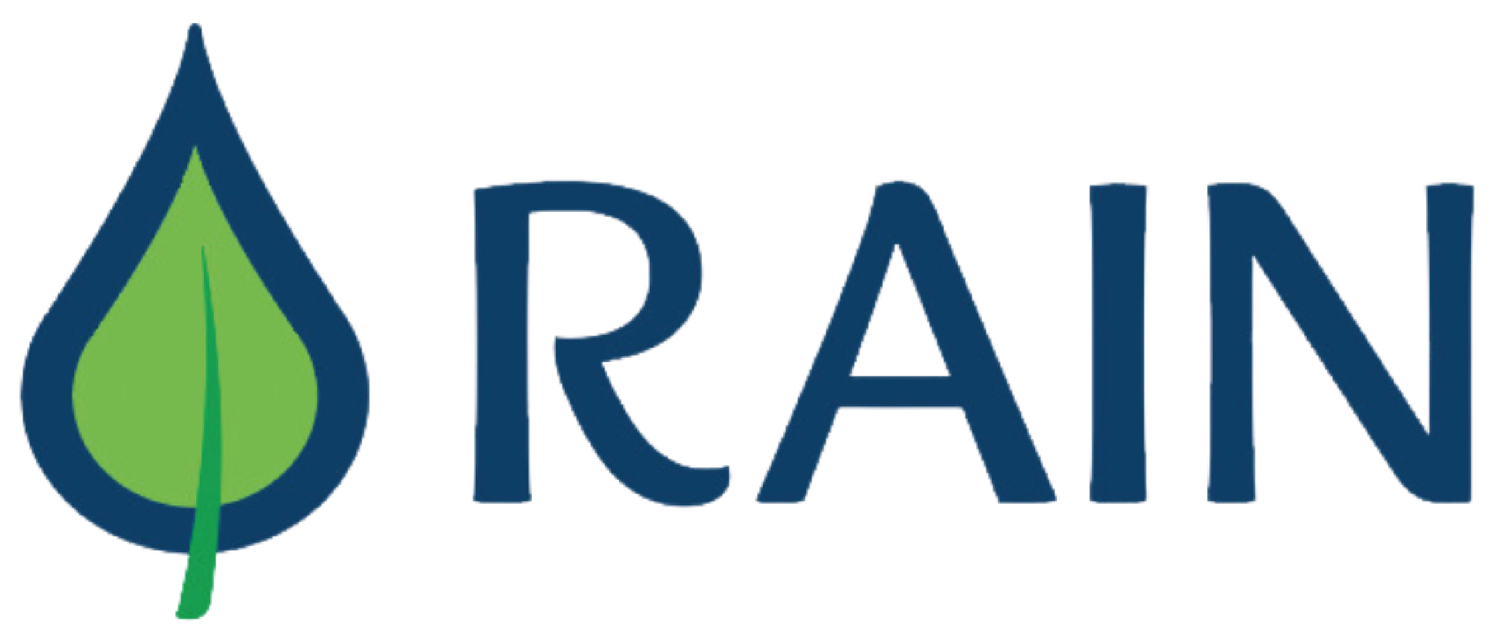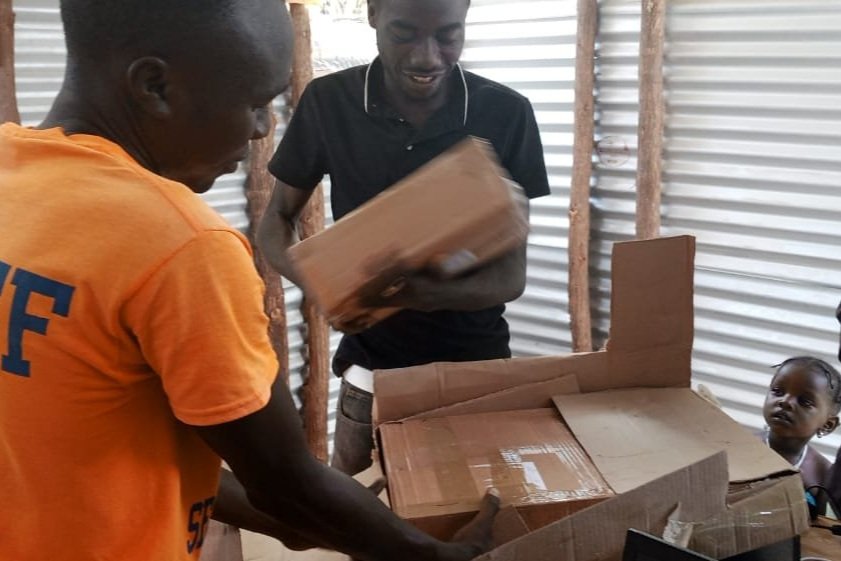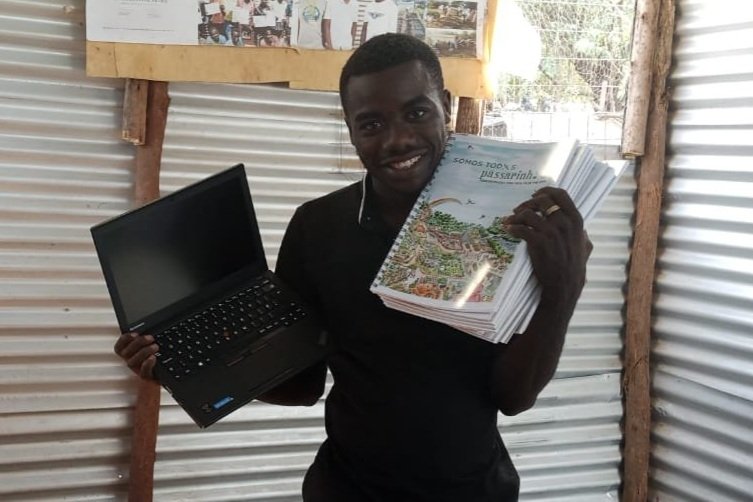Mutual aid from a Brazilian slum to a refugee camp
Communication and co-operation
The RAIN network is there to help us co-create a fairer world. We share resources so communities facing challenges can maximise their positive impacts. Those resources include good ideas that can be adapted and replicated in different contexts.
From a favela...
One of our first interventions was to fund Network for Agroecological Transition (Rede Pela Transição Agroecologico in Portuguese, or RPT) to develop and implement agroecological principles in the slums of the city of Recife. For her master's degree at the University of Pernambuco, Mariana worked with a black women's group in Passarinho favela (slum) to produce an educational booklet appropriate for their environment, and built a demonstration centre that is run by local activists.
English version of the educational booklet
It was a resounding success! The women learned a range of techniques to support food security, sustainability, and community resilience and cohesion. They then went on to take the work...
Samarina at work
...to nine favelas...
The next step was to help RPT fundraise to take the project into eight more favelas. Samarina was leading on four of these communities, adapting and replicating the work in different contexts. She did all this while having a baby, because she's amazing. We will be producing a detailed report in the near future.
RAIN works by supporting groups to run pilot projects, asking target communities to report on their successes and failures, and then improving the processes before replicating in different contexts. Like the mycorrhizal root network, the network learns by communicating effectively, so we can share our learning and adapt quickly to the realities of a changing world. What worked in the favelas of Recife is now being adapted and taken…
Second wave - centres in nine favelas
...to another continent
Recently we were contacted by Marcelin Petro via the Re-alliance network. Since fleeing conflict in Congo and arriving in Kakuma refugee camp, he has been working to help the community become more self-reliant, to provide food security and to improve their natural environment in the face of rapid climate change. 220,000 displaced people live in an area covering 2 square miles of desert, with no natural water sources.
The favela is a long way from Kakuma, but many of the techniques are applicable, whether that is collecting rainwater from the roof with up-cycled plastic bottles or high-density planting. Also, with twenty different languages from fifteen nations in the refugee camp, teaching is much easier when there are materials with clear illustrations. A volunteer translated the booklet into English, another loaded it up into InDesign, and we had some booklets printed.
Aaron is one of the original RAIN team, and like a lot of us he works in different organisations. His other work is in water and sanitation, and when he was deployed by Aqua Clara Kenya to work in Kenya, he took the opportunity to carry the booklets in his luggage. He also took a computer for Marcelin, which will be used to translate the booklet into Swahili.
Meanwhile, we are in the final stages of producing an Arabic translation, which will be soon be put to use in Kakuma refugee camp and also in the Palestinian Occupied Territories.
Making saplings in Kakuma refugee camp
Resilience in an uncertain world
Like everyone else with a heart and a social conscience, we at RAIN are keen to make our actions matter at this critical and painful moment. As news of war, hyperinflation and collapsing harvests burn into our minds via the familiar channels, we are focusing on positive action and refusing to bury our heads in the sand. We are doing everything we can think of to support those people threatened by the cracks opening up in the foundations of our familiar world, and working to facilitate the birth of something better.
While the newest wave of refugees are not yet in a position to think about growing food, we know that many will need support to feed themselves in the coming months.
Agroecology in urban slums and refugee camps is a viable way to help displaced people help themselves to survive, and even to start creating a future for themselves and their families. It works in schools, in gardens and vacant lots as well, and how conflict can impact exports and supply chains, it may be wise for all of us to take steps towards local food security.
All of this requires work, dedication and money, but if we come together and support each other as a collective superorganism, humanity may be capable of extraordinary things, of recovering what we have lost rather than wrecking what remains. At the very least, working for regeneration and a fairer and better-fed world helps us face our friends and families in the knowledge that our actions are making meaningful impacts. If you have time or skills to offer, please get in touch.
If you, your business or school wants to empower people to help themselves, then fundraise or donate.
We invite you to join a movement for a better world.








